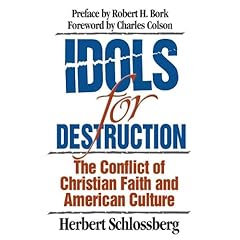Friday, October 24, 2008
Acton Institute on thrift and the financial crises
This post on the Acton Institute's PowerBlog is a good picture for the type of material I plan on writing:
While efforts to explain the financial crisis will continue for years (historians are still debating the causes of the Great Depression, eight decades later), it seems certain that its genesis cannot be fully understood without some recourse to the moral dimension of human action in the economy. Acton Institute commentators—Jonathan Witt, David Milroy, Sam Gregg—have already weighed in on the question.
Economists have long deplored the poor savings rate in the United States, arguing that our ever-increasing debt load (national and personal) would eventually come back to haunt us. British intellectual Peter Heslam points out that this problem is essentially moral, a failure to value the traditional virtue of thrift.
He writes:Hebrew and Christian scriptures support a theology of thrift. Literally, thrift means ‘prosperity’ or ‘well-being’, meanings encompassed in the Hebrew notion of shalom, which is central to the biblical theme of redemption. True, Jesus warned against laying up treasure on earth. But his warning is against greed and miserliness, which undermine thrift.
The only puzzling note Heslam hits is his final exhortation for government to push the sale of bonds. Granted that treasury bonds represent savings on the part of their buyers and granted that this is a better use of income than gambling, the other side of the coin is that bonds represent government borrowing from its people—not a good strategy for decreasing national indebtedness.
Better to put the money into stocks, corporate bonds, even passbook savings and certificates of deposit. This kind of saving is investment, the lifeblood of the market economy.
(The point here dovetails with Jordan Ballor’s endorsement of stewardship, posted as I typed this.)
Thursday, October 23, 2008
My blog title

As I begin this intellectual journey, I want to first thank Herbert Schlossberg, the author of Idols for Destruction, for the title of my blog.
Schlossberg's chapter on politics (where I got my title), describes how many thinkers, especially from the intellectual line of Hegel and Marx view the state as the "savior" for mankind. Here's one quote by Hegel that sums up this position:
"We must therefore worship the State as the manifestation of the Divine of earth, and consider that, if it is difficult to comprehend Nature, it is harder to grasp the Essence of the State...the State is the march of God through the world..."A goal of mine for this blog is to combat this notion that the state is where we find our sustenance, security, and identity. Think these ideas died out with communism? With all of this talk about "Hope" and putting our "Country First," it seems I have my work cut out for me.
Subscribe to:
Posts (Atom)


